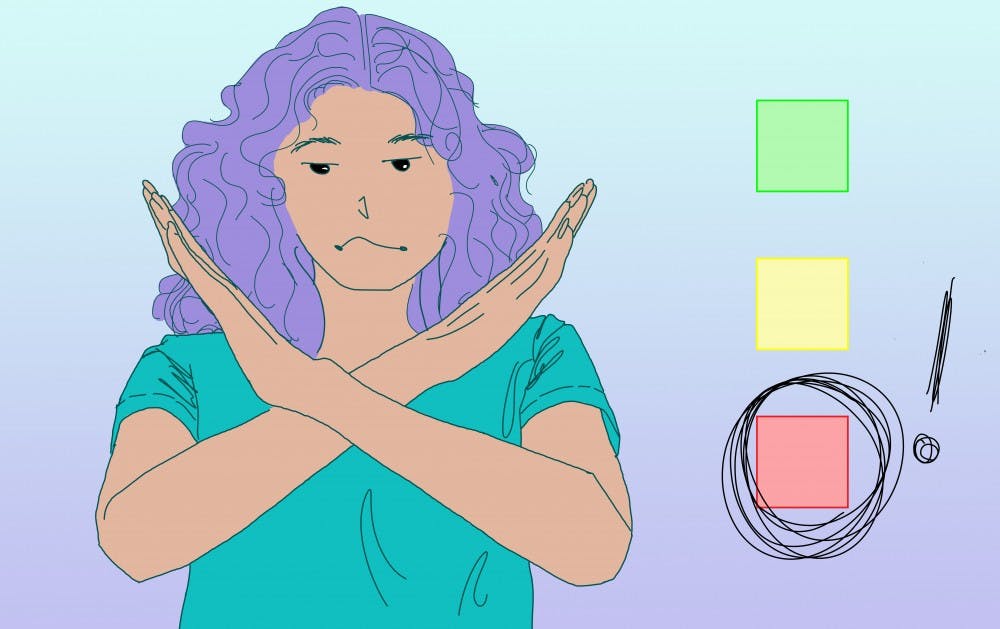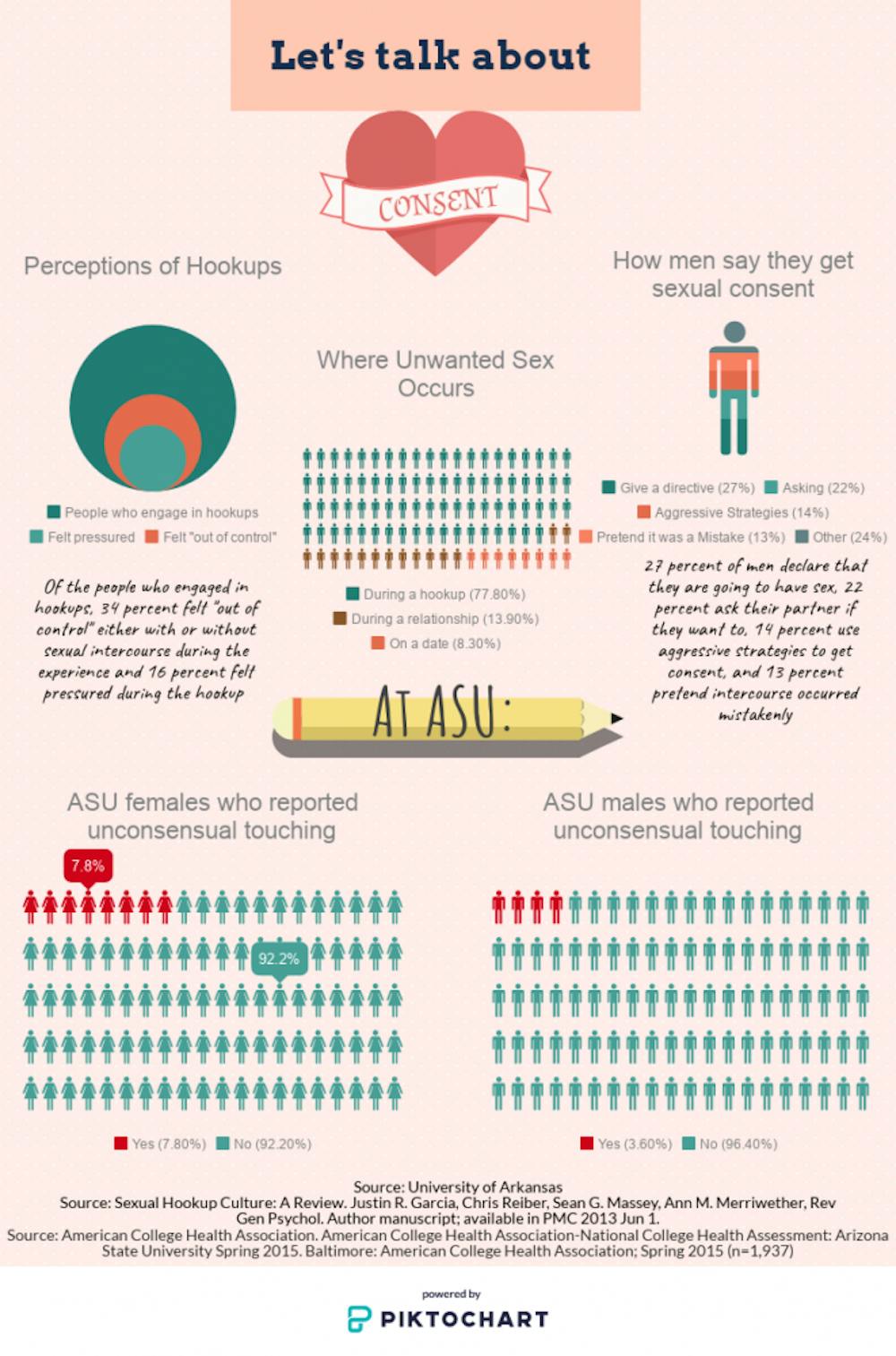On Jan. 13, babe.net published an anonymous woman’s account of her date with actor and comedian Aziz Ansari, in which she said she felt sexually pressured despite giving both verbal and nonverbal cues of her disinterest.
This incident, sadly, is all too familiar to many college students, especially with the prevalence of hookup culture on college campuses, which comes with a certain expectation to perform sexually.
Given the disparity in the way that college-aged men and women perceive consent, ASU students should take advantages of the counseling and educational resources that the university has to offer and proactively communicate with sexual partners to define boundaries and recognize sexual pressure.
S. Lee Spencer, an instructor at ASU’s department of psychology, said that the situation with Ansari provides an opportunity for a deeper discussion of the way we handle consent.
“I think that it’s very complicated but invites us to get to a level that a lot of people aren’t at yet,” Spencer said. “It’s one level to teach women that they have the right to say no, and for men to abide by that, and that’s one very basic level of sexual consent. I think that this is the next level of conversation to have, and that is, short of enthusiastic consent, don’t proceed.”
At ASU, 3.1 percent of female students and 1.2 percent of male students reportedly experienced either an attempted or complete sexual assault, while 7.8 percent of female students and 3.6 percent of male students had reportedly been touched sexually against their will, according to the University.
The frequency of casual sex is extremely prevalent on college campuses; in one study, 81 percent of undergraduates reportedly had partaken in some form of hookup behavior.
Nikki Truscelli, graduate teaching associate at ASU's Hugh Downs School Of Human Communication, said that there is an explanation for why casual relationships tend to foster discomfort for at least one participant.
“Often times, because there’s actually a very ambiguous nature to these relationships, even the way we go about defining them, there’s not clear communication,” Truscelli said. “And often times, people who engage in these relationships, think that communication … shouldn’t have to occur in these relationships because they are, by nature, casual.”
Students should actively work to communicate with their partners, casual or not, in order to avoid situations where one participant assumes consent of the other.
“Partners need to have this discussion proactively rather than reactively,” Truscelli said. “Often times, people start hooking up and afterwards they say, ‘Oh, was that cool with you?’ That conversation needs to happen before anything occurs.”
Even in non-casual, well-defined relationships, the same issue with the disregard of consent often persists.
In the ASU student community, 1.4 percent of female students and 0.7 percent male students reportedly had been in a sexually abusive relationship in 2015, according to the University.
“People typically don’t think of it, but consent is something that is active and alive and can be retracted at any time,” Truscelli said. “Just because you are in a committed relationship and you have a serious partner, that by no means guarantees consent every time.”
Students interested in continuing the discussion of consent can and should take advantage of the resources that ASU has to offer, including Devils in the Bedroom and Students for Consent.
“It needs to be a cultural change, so we need to make it sexy or hot to have these kinds of conversations, because right now, in these kinds of relationships, it kind of looks unattractive or lame to have these very important conversations such as consent or defining boundaries,” Truscelli said. “We need to change that culture.”
Reach the columnist at kalbal@asu.edu or follow @KarishmaAlbal on Twitter.
Editor’s note: The opinions presented in this column are the author’s and do not imply any endorsement from The State Press or its editors.
Want to join the conversation? Send an email to opiniondesk.statepress@gmail.com. Keep letters under 500 words and be sure to include your university affiliation. Anonymity will not be granted.
Like The State Press on Facebook and follow @statepress on Twitter.





